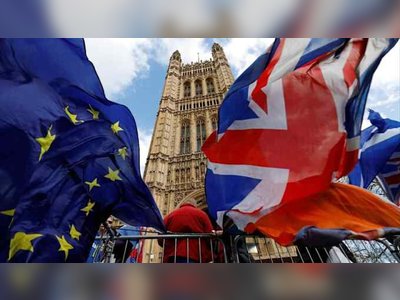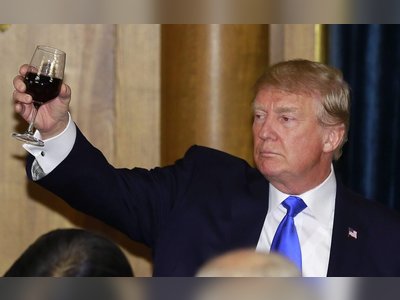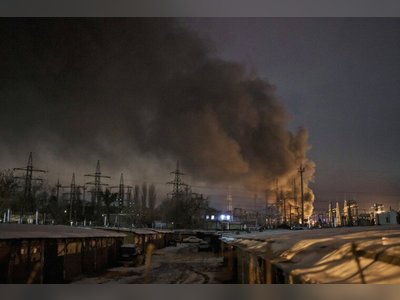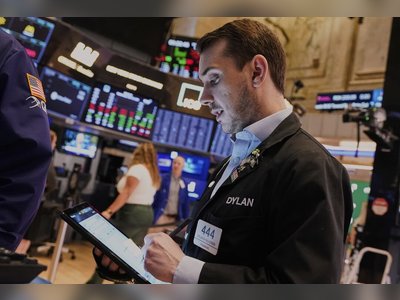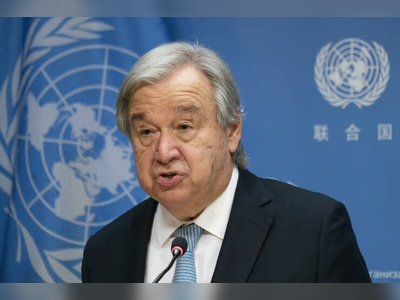
Germany's Conservative Leadership Trio Set to Influence Europe's Future
Friedrich Merz, Ursula von der Leyen, and Manfred Weber have joined forces to exert significant influence over EU policy and governance. The concentration of leadership between Merz, von der Leyen, and Weber indicates a possibly transformative era for the EU. Their unified influence could mold policy in critical sectors, ranging from economic competitiveness to migration and environmental reforms.
As Germany’s federal election on February 23, 2025, approaches, attention is concentrated on three leading conservative figures—Friedrich Merz, Ursula von der Leyen, and Manfred Weber—who are set to have significant roles in shaping the European Union's trajectory.
This group, consisting of members from the Christian Democratic Union (CDU) and its Bavarian counterpart, the Christian Social Union (CSU), could synchronize Germany's national leadership with the EU's institutional framework, forming a formidable axis of influence.
Friedrich Merz: Chancellor Candidate
Friedrich Merz, head of the CDU and the leading contender for Germany's chancellor position, has presented an election manifesto highlighting tax cuts and actions to curb illegal migration.
His plans propose reducing income tax rates and cutting corporate taxes to 25%.
Merz has also emphasized industrial policy alongside climate protection, supporting a balanced shift from fossil fuels to renewable energy without undermining Germany’s industrial competitiveness.
Ursula von der Leyen: European Commission President
Ursula von der Leyen, who has been President of the European Commission since 2019, has guided the EU's response to major challenges, such as the COVID-19 pandemic and geopolitical tensions.
Recently re-elected for another term, von der Leyen has been praised for her leadership, receiving the 2025 Charlemagne Prize for her contributions to European unity and global representation.
Her recent public engagements, including her backing of Merz in Berlin, highlight the strategic alignment between their political objectives.
Manfred Weber: European People’s Party Leader
Manfred Weber, guiding the European People’s Party (EPP) since 2014, has been crucial in directing EU policy developments.
He was instrumental in securing parliamentary backing for von der Leyen’s second term as Commission President.
Weber’s sway within the EPP enables him to skillfully manage complex legislative negotiations, positioning the party to further its conservative agenda in the European Parliament.
Collaborative Dynamics and Challenges
The proposed alignment of Merz, von der Leyen, and Weber across Germany and the EU’s main institutions could propel unified policy efforts.
Their shared conservative values imply cooperation on economic reforms, streamlining regulations, and security strategies.
Nonetheless, challenges persist, such as internal splits within the European People’s Party and conflicting priorities among EU member states.
Notably, policy disputes between von der Leyen and Weber have surfaced, especially concerning environmental strategies and regulatory reforms.
Strategic Policy Objectives
Economic Competitiveness: Merz has prioritized reducing Germany’s regulatory load, much of which stems from EU directives.
This includes simplifying business processes and boosting industrial competitiveness.
Migration Reform: The plans involve revising EU asylum regulations and enhancing collaboration with frontline states for better migration management.
Regulatory Streamlining: Von der Leyen’s comprehensive legislation seeks to lessen reporting burdens for businesses, though critics argue further reforms are necessary for meaningful deregulation.
Outlook
The consolidation of leadership roles among Merz, von der Leyen, and Weber suggests a potentially transformative era for the EU. Their combined influence could impact policies across vital areas, from economic competitiveness to migration and environmental reforms.
As Germany prepares for its federal election, observers closely watch how this conservative leadership trio will navigate the complexities of EU governance and tackle the continent’s urgent challenges.
This group, consisting of members from the Christian Democratic Union (CDU) and its Bavarian counterpart, the Christian Social Union (CSU), could synchronize Germany's national leadership with the EU's institutional framework, forming a formidable axis of influence.
Friedrich Merz: Chancellor Candidate
Friedrich Merz, head of the CDU and the leading contender for Germany's chancellor position, has presented an election manifesto highlighting tax cuts and actions to curb illegal migration.
His plans propose reducing income tax rates and cutting corporate taxes to 25%.
Merz has also emphasized industrial policy alongside climate protection, supporting a balanced shift from fossil fuels to renewable energy without undermining Germany’s industrial competitiveness.
Ursula von der Leyen: European Commission President
Ursula von der Leyen, who has been President of the European Commission since 2019, has guided the EU's response to major challenges, such as the COVID-19 pandemic and geopolitical tensions.
Recently re-elected for another term, von der Leyen has been praised for her leadership, receiving the 2025 Charlemagne Prize for her contributions to European unity and global representation.
Her recent public engagements, including her backing of Merz in Berlin, highlight the strategic alignment between their political objectives.
Manfred Weber: European People’s Party Leader
Manfred Weber, guiding the European People’s Party (EPP) since 2014, has been crucial in directing EU policy developments.
He was instrumental in securing parliamentary backing for von der Leyen’s second term as Commission President.
Weber’s sway within the EPP enables him to skillfully manage complex legislative negotiations, positioning the party to further its conservative agenda in the European Parliament.
Collaborative Dynamics and Challenges
The proposed alignment of Merz, von der Leyen, and Weber across Germany and the EU’s main institutions could propel unified policy efforts.
Their shared conservative values imply cooperation on economic reforms, streamlining regulations, and security strategies.
Nonetheless, challenges persist, such as internal splits within the European People’s Party and conflicting priorities among EU member states.
Notably, policy disputes between von der Leyen and Weber have surfaced, especially concerning environmental strategies and regulatory reforms.
Strategic Policy Objectives
Economic Competitiveness: Merz has prioritized reducing Germany’s regulatory load, much of which stems from EU directives.
This includes simplifying business processes and boosting industrial competitiveness.
Migration Reform: The plans involve revising EU asylum regulations and enhancing collaboration with frontline states for better migration management.
Regulatory Streamlining: Von der Leyen’s comprehensive legislation seeks to lessen reporting burdens for businesses, though critics argue further reforms are necessary for meaningful deregulation.
Outlook
The consolidation of leadership roles among Merz, von der Leyen, and Weber suggests a potentially transformative era for the EU. Their combined influence could impact policies across vital areas, from economic competitiveness to migration and environmental reforms.
As Germany prepares for its federal election, observers closely watch how this conservative leadership trio will navigate the complexities of EU governance and tackle the continent’s urgent challenges.
Translation:
Translated by AI
AI Disclaimer: An advanced artificial intelligence (AI) system generated the content of this page on its own. This innovative technology conducts extensive research from a variety of reliable sources, performs rigorous fact-checking and verification, cleans up and balances biased or manipulated content, and presents a minimal factual summary that is just enough yet essential for you to function as an informed and educated citizen. Please keep in mind, however, that this system is an evolving technology, and as a result, the article may contain accidental inaccuracies or errors. We urge you to help us improve our site by reporting any inaccuracies you find using the "Contact Us" link at the bottom of this page. Your helpful feedback helps us improve our system and deliver more precise content. When you find an article of interest here, please look for the full and extensive coverage of this topic in traditional news sources, as they are written by professional journalists that we try to support, not replace. We appreciate your understanding and assistance.

